The German government has recently published the results of a Glücksspielatlas Deutschland 2023 and so, they enable us to estimate the number of gamblers, i.e. the share of women and men, and what are the gambling revenues for the government. To this end, experts from Casinospot.de, who provide unbiased reviews of the gambling market, scrupulously analyzed 169 pages of the study.
Glücksspielatlas Deutschland 2023 contains data from the current publications by experts from the Institute for Interdisciplinary Addiction and Drug Research (ISD Hamburg) and the Department of Gambling Research at the University of Bremen. The German Centre for Addiction Problems (DHS) is also listed as a co-publisher.
To better understand the development of this industry in Germany, let’s look at the financial indicators. In 2022, the gross revenue of the legal gambling industry was €13.4 billion. Revenues from illegal gambling, and here we are talking about the providers that have no German licenses but offer their services to German gamblers, cannot be taken into account because there is no official data in this respect.
All licensed gambling providers in Germany have to pay taxes, and in 2022, the national budget earned 5.2 billion euros from this industry. By the way, since 2015, the gambling taxes have consistently exceeded 5 billion euros. Depending on the land, a part of the revenue goes to sports, culture, social and economic areas.
What kind of gambling do Germans prefer
Based on the data published in the report, Germans are crazy about slot machines (36%) and various lotteries (39.2%), followed by sports betting (10.5%) and casinos (8.2%), and finally horse betting (0.3%) and, at last, virtual slots and online poker (0.1%). Please note that the data is provided only for the licensed gambling establishments.
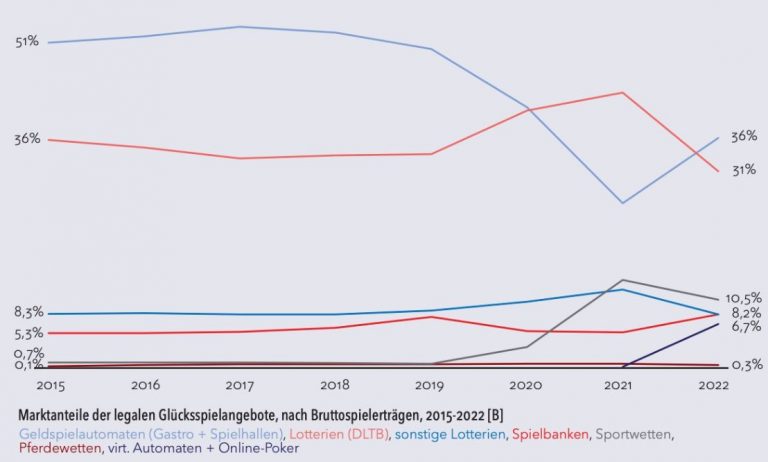
So, now let’s look at the number of legal and illegal gambling providers.
In 2022, there were 17-18 legal casino companies, approximately 5000-6000 commercial slot machine operators, 16 operators of state lottery companies and 31 sports betting providers. In most cases, these are land-based gambling facilities.
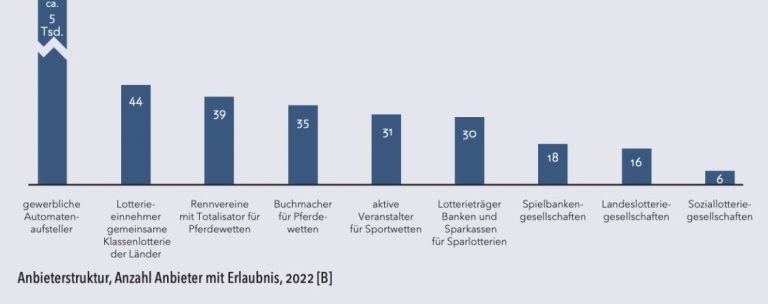
If we look at the data provided in the report dealing with the illegal gambling, we have the following statistics: there are 207 illegal organizers and 845 illegal German-speaking gambling sites on the market, offering online casino games, slot machines, sports betting, poker and non-state lotteries. So, we cannot calculate accurate data on participation in games offered in the online space. This leaves room for assumptions as to how many German players are going to these portals.
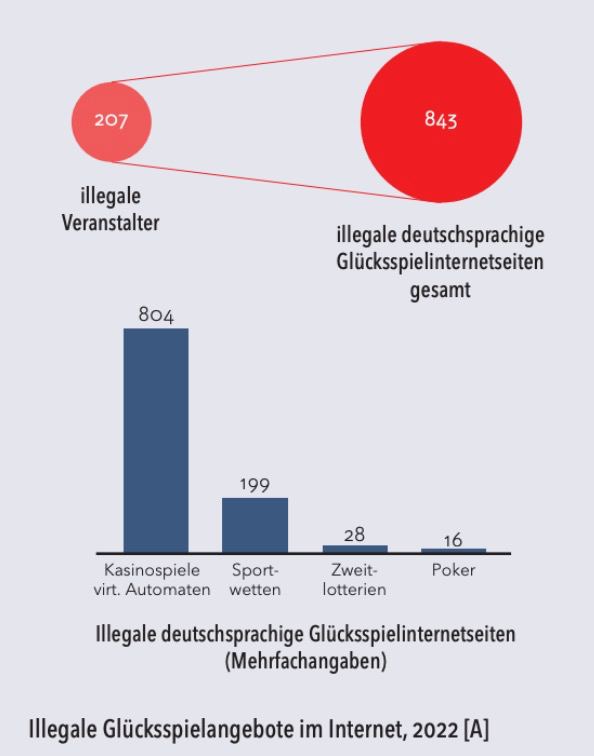
Differences in gambling behavior between men and women
The largest age groups interested in gambling are 36-45 years old (34%), 46-55 years old (32%) and 26-35 years old (32%). The general trend of involvement shows that men are dominating in any age group.
People under the age of 25 participate in gambling much less, and the quantitative difference between male and female gambling is the largest in the age group of 21-25 (13%).
As it turns out, men gamble more often than women: 48% of men who gamble do so weekly or even daily. At the same time, when talking about women, this figure is 37%.
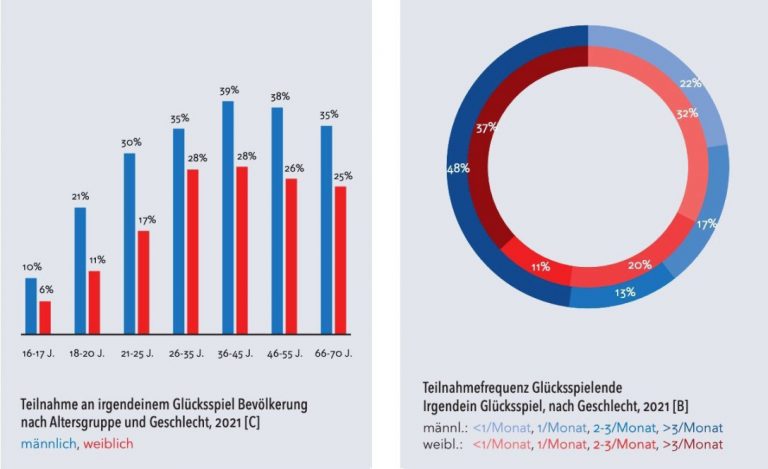
In addition, men’s interest in participating in high-risk gambling (casino, slot machines, sports betting) is more than 3 times higher and much more intense than women’s – 46% of them participate in such games at least weekly or even daily. For women, the corresponding share is 35%.
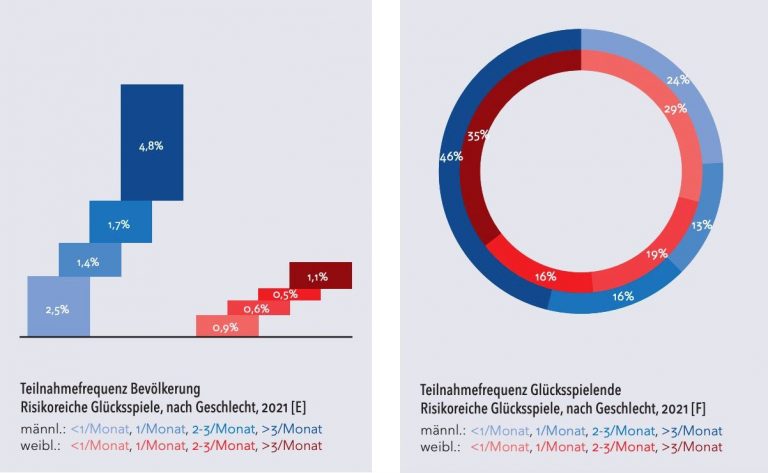
The overwhelming majority of German gamblers (68% of the total) choose only one type of gambling for their leisure time, with women outnumbering men by 7%. However, the share of the men who usually play three or more gambling formats exceeds 5%.
It turned out that women (44%) like to go to gambling establishments or restaurants with gambling halls more than men (38%). At the same time, more men (36%) than women (28%) participate in online games. Consequently, 25% of Germans, both men and women, combine online gambling with visiting land-based gambling facilities.
The authors of the study assert that the share of immigrants in gambling is significantly lower (24%) than among people who are not immigrants to this country (31%). But as we can see, the difference is not significant.
At the end of the day, we can make a conclusion that de-facto German men are more gamblers and tend to spend their time risking their finances more than women. However, please note that if we look at the quantitative parameters, the difference in gambling behavior by gender is quite small.



